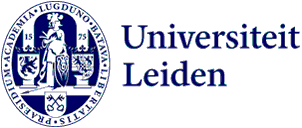Guidelines for event pages
Website visitors want to see at a glance whether an activity looks worthwhile. How do you create a good event page? Here are a few guidelines.
Fill in the fields
- Provide a short intro (40 words max.) that clearly states what the activity is.
- You do not need to mention the type of event and speaker in the title. There are separate fields for this.
- You do not need to include the time, location and speakers in the running text. You can enter these in the fields provided. Use an internal link for the location block if the event is at a university location. Do not enter the address manually.
- Enter no more than two speakers in the speaker field (their names are shown in gold below the title). If there are more than two speakers, use the ‘Persons’ block in the right column. You can use the ‘Persons’ block even if there are only one or two speakers.
- The default title above the ‘Persons’ block in the right column is ‘Related academic staff’. You can enter an alternative title if not all the speakers are academic staff: for example, ‘Speakers’ or ‘People involved’.
Links
- Create a button for the registration form rather than using nondescript links. To do so, add a ‘call to action’ block.
- Use meaningful links. So ‘More information about event X’ rather than ‘For more information click here’.
- Always use internal links when referring to pages on the university website.
Lists
- If you want to list the topics that will be covered in a meeting or the speakers that will be there, for example, use a bullet list to do so.
Programme
- The ‘definition’ block is generally the best way to give a clear overview of the event programme. If you want to add more information, such as links or images, then it is better to use a table or paragraphs. An accordion can also be useful here.
English and Dutch
- Do not use English text on Dutch pages and vice versa. Translate the entire text or place a short intro and then add an internal link to the English or Dutch counterpart.
